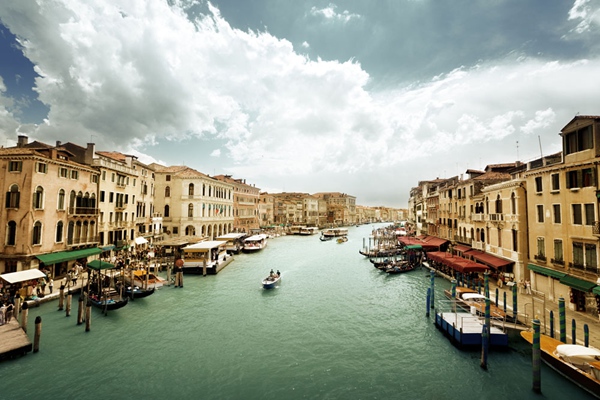By A. Elena Ursu, LLM, 2015 Yenching Scholar at Peking University
Relations between China and Italy have dated back to the times of the Imperial China and Ancient Rome eras when the exchange of goods on land via the Silk Road, and on sea routes, had witnessed a surge of Chinese silk and Roman glassware trading hands through merchants.

During the Middle Ages, Marco Polo, a Venetian merchant, had undertaken a legendary journey from Venice to China, then known as the Middle Kingdom. The journal of his travels had depicted the advanced state of Chinese culture, which sparked Western fascination for the Orient.
Along with Matteo Ricci, founding father of the Jesuit missions to China during the European Renaissance, they had opened up a cultural dialogue between the East and West.
Ties between the People's Republic of China and Italian Republic were formalized in 1970. Rome had encouraged other European States to establish diplomatic relations with China as well.
More than 300,000 Chinese live in Italy, including students and entrepreneurs, while only 8,000 Italians call China their home, most of them are students.
As China continues its dramatic transformation and playing a more prominent role in the world's economic and political arena, it is essential for every country, and citizen of the world, to become more informed on Beijing's stronger geo-political influence .
Italy and China should stay united to preserve constant dialogue between the East and West in order to protect common interests: trade and investment, non-proliferation of nuclear weapons, human rights, and global governance.
Italy, an active member of the European Union, should outline broader and shared goals where China can enjoy more enhanced economic cooperation with the EU.
Beijing has risen rapidly in status with international organizations and global governance mechanisms, proving that China, its people and the government can positively engage with the international community.
Meanwhile, the voices of EU member States are sending an unequivocal message to China that they endorse the country's reforms and development to shape its path to become a responsible international player.
Chinese President Xi Jinping gave a speech in Dec. 2015, stressing the need for greater cooperation in addressing critical issues in the global economy to promote strong, sustainable and balanced growth.
He favors inter-connectedness and mutual benefits for all members of the global community, which lies as the core theme chosen for the 2016 G20 Hangzhou Summit, "Towards an Innovative, Invigorated, Interconnected and Inclusive World Economy."
As a member of the G20, Italy will participate in the Hangzhou Summit, where nineteen other individual States, including the EU, will work toward building bridges with different communities in our world.
As a young student and professional, I hope Italy and China can strengthen cooperation with regards to people-to-people exchanges and programs that support more interactions between different cultures, and to shape strategies for positive interactions not only between governments, but also among experts, researchers, students and professionals which could lead a pathway for better mutual understanding.
( The opinions expressed here do not necessarily reflect the opinions of Panview or CCTV.com. )

Panview offers an alternative angle on China and the rest of the world through the analyses and opinions of experts. We also welcome outside submissions, so feel free to send in your own editorials to "globalopinion@vip.cntv.cn" for consideration.















